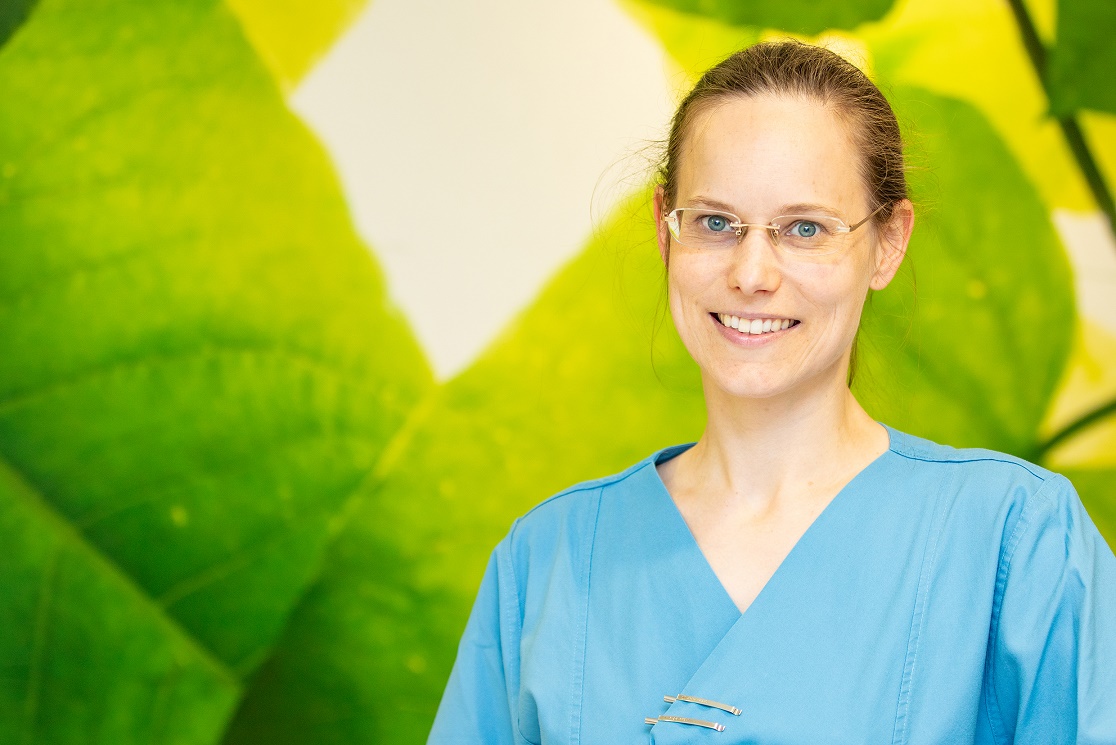‘We must adhere to our moral compass,’ says Dr Friederike Klein. An interview about ethical standards in the current political and social climate.

Dr Friederike Klein: ‘The health and well-being of each individual patient should remain our top priority under all circumstances.’ Copyright: Karin Kaiser/MHH
‘Gegen das Vergessen’ (Against Forgetting) is an initiative of the German Society for Gastroenterology, Digestive and Metabolic Diseases (DGVS). It commemorates the fate of Jewish physicians in the Third Reich and promotes democratic values, humanity and an open scientific culture. Dr Friederike Klein from the Gastroenterology, Hepatology, Infectiology and Endocrinology is also involved in the initiative. In this interview, she explains why.
‘Gegen das Vergessen’ is about the Nazi past and the lessons we should learn from it for our actions today. Why are you interested in this topic?
I come from a family that is very interested in history. In addition, a personal discovery moved me deeply. While clearing out my grandparents' house, I found a physician's letter about my great-grandfather from 1938. As I found out, the physician who examined him was a staunch Nazi with close ties to leading Nazi figures such as Reinhard Heydrich. At the same time, the DGVS invited me to participate in the ‘Gegen das Vergessen’ initiative, and I didn't have to think twice.
Why are you involved as a physician?
Because it is my personal conviction. The history of National Socialism clearly shows how the rule of law and medical ethics can be eroded. The focus was no longer on the individual, but on the community – a ‘people's body’. It becomes clear how political agitation, discrimination and fake news were able to change medical ethics in a very short time, resulting in forced sterilisation, human experimentation and systematic murder. The biographies of physicians illustrate how a moral compass can change and that this can happen to anyone – including us. Raising awareness of this is an important building block for protecting our ethics. The Geneva Declaration provides us with a yardstick that we can use to recalibrate our moral compass time and again.
Do you see critical developments in your everyday professional life?
In healthcare, we have a severe shortage of resources at various levels. This puts pressure on all employees and carries the risk of a shift in ethical standards, especially given the current political and social changes. The health and well-being of each individual patient should remain our top priority under all circumstances. Putting the individual at the centre of considerations rather than thinking in terms of collectives is an important preventive measure, not only in medicine.
Interview: Tina Götting
The project
Among the millions of Jews persecuted during the Nazi era were many physicians. In 1932, the membership register of the professional association DGVS listed 425 people. By 1933, 158 Jewish names had already been removed from this list. ‘The exclusion of Jewish members from the professional association is a depressing chapter in our history,’ says Professor Dr Heiner Wedemeyer, Director of the Gastroenterology, Hepatology, Infectiology and Endocrinology and President of the DGVS. Through campaigns and discussion panels, the project aims to promote a lasting culture of remembrance and raise awareness of the dangers of exclusion and discrimination. One of these events took place at the MHH in June this year.